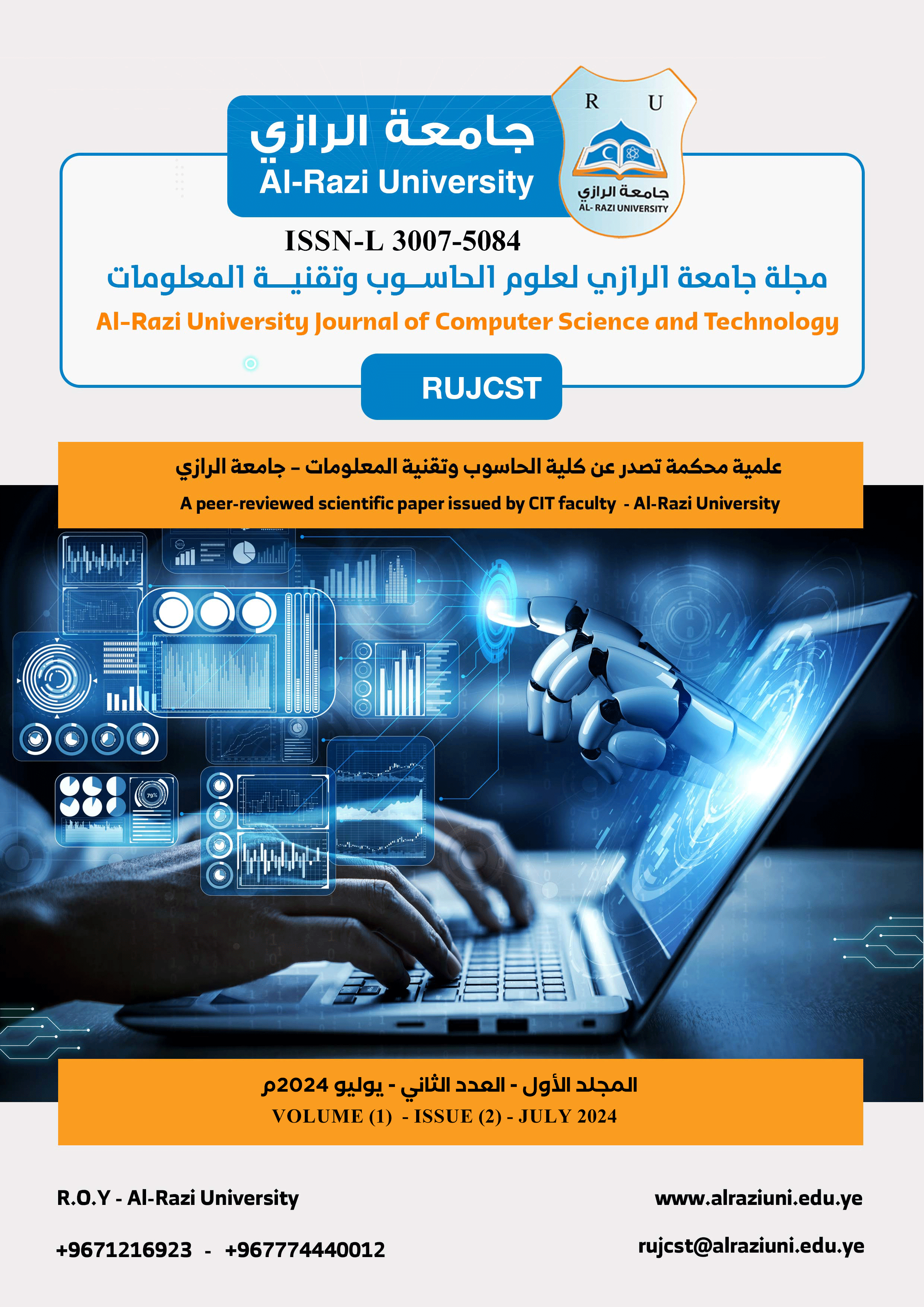Artificial Intelligence for Analyzing Decadal Land Changes in Sana’s- Yemen From 1980 to 2020 Using Remote Sensing & GIS
الذكاء الاصطناعي لتحليل التغيرات الأرضية العقدية في صنعاء - اليمن من 1980 إلى 2020 باستخدام الاستشعار عن بعد ونظم المعلومات الجغرافية
الملخص
Managing natural resources has become crucial due to rapid population growth, weather changes, and disasters. LULC maps are essential for planning and managing resources, but developing countries such as Yemen lack such studies and sufficient interest in this field. The problem of this study is to find solutions in studying the management of natural resources that lead to making appropriate decisions for the advancement of the economic situation and the management of agricultural, industrial, and population lands. The objectives of this research are: 1. To determine land changes in Sana'a city from 1980 to 2020. 2. To create a database for Land Use & Land Cover (LULC) classification of Sana'a city from 1980 to 2020. It has used remote sensing and GIS technology with Landsat images from 1980,1990,2000, 2010, and 2020 with the best classifier from the machine learning technique object-based classifier as Random Forest (RF) algorithm, affiliated to technologies Artificial intelligence (AI) technique. The research determined the changes in land in Sana'a over these decades. The findings demonstrated that in Sana'a before 2010, urban area density increased, and in 2010, it decreased. Sana'a's urban area density increased in 2020. The built-up area changed, with percentages of 12.17% in 1980, 34.24 in 1990, 40.15% in 2000, 30.94% in 2010, and 44.74% in 2020. The average classification accuracy was 99.88%. Recommendations for sustainable urban growth in Sana'a include enforcing policies to protect agricultural lands, promoting eco-friendly practices, studying socio-economic factors of urban expansion, training local planners, and educating the public on sustainable land use. This research recommends that the following studies find solutions for better resource management to enhance economic conditions and manage lands effectively.

